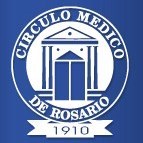MULTI-DRUG RESISTANT BACTERIA COLONIZATION IN A RESIDENTIAL AGED CARE FACILITY
Keywords:
residential aged care facilities, colonization, multi-drug resistant bacteriaAbstract
Abstract
Introduction: Bacterial resistance is a growing problem with an unfavorable economic and social impact. The epidemiological contribution of residential aged care facilities has not been sufficiently evaluated in our setting.
Methods: Seventy-two residents, were studied to detect colonization, nasal (Methicillin-resistant Staphylococcus aureus) and rectal (ESBL- enterobacteriaceae, KPC-enterobacteriaceae and vancomycin-resistant ).
Results: The residents, with an average age of 85.8 years, the majority of whom were women (75%), had an average length of stay of 1,504 days. 62.5% had a Charlson score >4 and 58.3% an ADL (Activity daily living) >1; 23.6% of them received antibiotics in the last month; 13.9% were admitted to a hospital in the last 6 months. 22.2% were colonized: ESBL-enterobacteriaceae, 20.8%; Methicillin-resistant Staphylococcus aureus, 2.8%; KPC-enterobacteriaceae, 1.4% and EVR, 1.4%. Previous antibiotic use was the only risk factor identified (OR 6.09) in ESBL-enterobacteriaceae colonized. In no case were roommates of ESBL carriers colonized.
Discussion: Colonization by ESBL-enterobacteriaceae was the most frequent and previous antibiotics the risk factor. Cross transmission does not appear to have been relevant.
Downloads
Published
How to Cite
Issue
Section
License
Copyright (c) 2024 Joaquín Bermejo, Raquel De La Riestra, Noemí Borda, Victoria Rucci, Julieta Freije, Rodolfo Notario

This work is licensed under a Creative Commons Attribution-ShareAlike 4.0 International License.
Licencia Atribución-CompartirIgual 4.0 Internacional (CC BY-SA 4.0)
https://creativecommons.org/licenses/by-sa/4.0/deed.es






